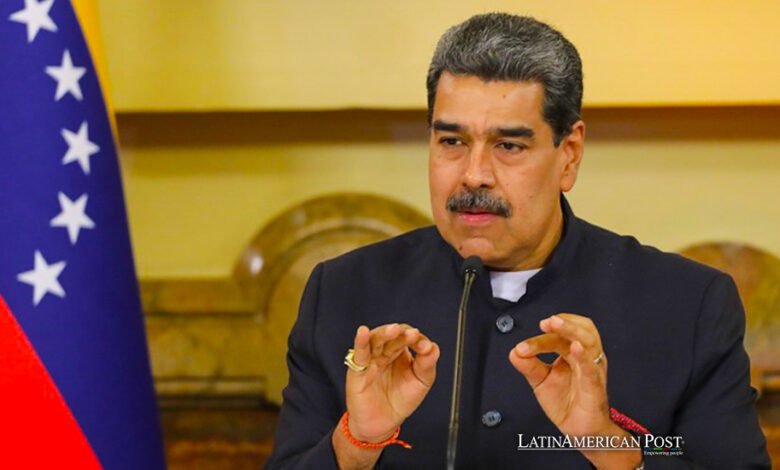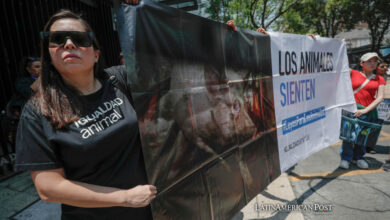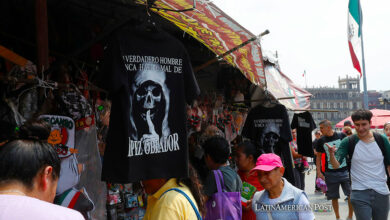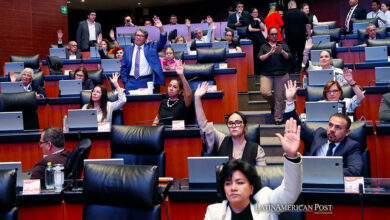Venezuelan Parliament Creates Commission to Investigate Opposition Parties and Former Deputies

In a move intensifying the political tensions in Venezuela, the National Assembly (AN), dominated by the Chavista majority, has initiated a decisive step to investigate former deputies and political parties. Despite their term ending in 2020, these groups continue to hold meetings and allegedly control some of the country’s assets abroad.
Chavista President Orders Investigation
Jorge Rodríguez, the Chavista President of the Chamber, tasked Pedro Infante (PSUV), the first vice president, with preparing a report. Within a week, this report is expected to shed light on the activities of the former deputies who supported the continuation of this opposition group and the political organizations backing them.
Rodríguez’s directive to the commission, led by Deputy Pedro Infante, is to scrutinize, individually, those involved in what he describes as ‘usurping a public office.’ He particularly pointed to the case of Dinorah Figuera, a former deputy now exiled in Spain, questioning her perpetual claim to her deputy role.
This deepening investigation by the Chavista-led AN is not merely a political maneuver; it delves into allegations of misusing state resources. Rodríguez accused the 2015 AN faction of utilizing these resources to support opposition members abroad, finance political campaigns, and bolster anti-Chavista parties.
Reviewing Actions in Light of New Laws
According to the parliamentarian, these actions need to be reviewed concerning the laws of Extinction of Domain and Protection of Assets, Rights, and Interests of the Republic and its Entities Abroad. These laws, enacted in 2023, safeguard national assets against misappropriation or exploitation.
Rodríguez’s remarks highlight the ongoing political negotiations known as the Barbados Agreement. He suggests that within the framework of this agreement and the new laws, the ex-deputies could demand to return the assets in question.
Alleged Misappropriation
The assembly’s decision comes in the wake of accusations made by Rodríguez the previous Friday. He alleged that opposition members were exploiting Venezuelan assets held overseas. These actions, he emphasized, contravened the agreements reached in October in Barbados.
This development in Venezuelan politics is more than a mere internal dispute within the National Assembly. It reflects the deep-seated divide between the Chavista regime and its opposition. The continuation of the 2015 Legislature’s activities by the opposition has long been a thorn in the side of the current government, which views it as a challenge to its legitimacy and governance.
The investigation spearheaded by the AN goes beyond the political sphere. It delves into the financial implications of the alleged control and misuse of Venezuelan assets abroad. The repercussions of this investigation could be significant, especially in the context of the forthcoming presidential elections.
The AN’s decision also signals a tightening grip on political dissent and opposition activities within Venezuela. By scrutinizing the legality and ethics of the opposition’s actions, the government reinforces its stance against what it perceives as a continuous challenge to its authority.
Strategic Use of Barbados Agreement: Legal and Political Blend
The reference to the Barbados Agreement is particularly poignant. It highlights the ongoing efforts for political negotiation and dialogue in a country deeply divided by political ideology and economic strife. The government’s readiness to invoke this agreement in the context of the investigation suggests a strategic approach to handling opposition, blending legal action with political negotiation.
As Venezuela gears up for its presidential elections, the role of the 2015 Legislature and the opposition’s activities in general come under increasing scrutiny. The AN’s investigation is not just about addressing past actions but also about shaping the future political landscape of the country.
Also read: Rescue Highlights The Perilous Journey of Venezuelan Migrants in Mexico
This latest development in Venezuelan politics indicates the government’s resolve to challenge and potentially curtail opposition activities. The outcome of this investigation and its implications on Venezuela’s broader political and economic fabric will be closely watched, both domestically and internationally.
As the country navigates through its complex political dynamics, the actions of the National Assembly and the opposition’s responses will play a crucial role in defining Venezuela’s path forward.





